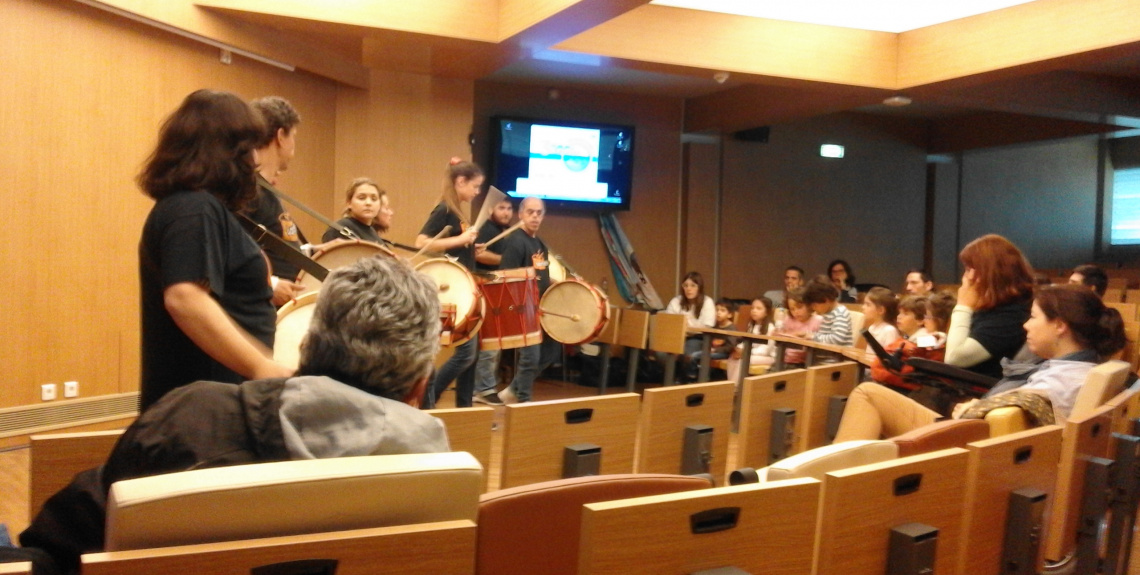Last May 28, the Committee on Social Inclusion, Participatory Democracy and Human Rights was invited to the third edition of the Lisbon Citizens Forum, a participative space where the city and its inhabitants jointly defined the guidelines of the fight against inequalities, adopting a human rights-based approach.
The Citizens Forum process
For the third consecutive year, Joao Afonso, Lisbon’s Deputy Mayor for Social Rights, invited all inhabitants, municipal services and civil society to reflect on the strategy to fight inequalities in Lisbon.
This initiative, developed in partnership with the Centre for Social Studies of the University of Coimbra (Observatory of Crisis and Alternatives), is based on the idea that deprivation of rights is not only a result of a lack of resources but also of inequalities –which tend to reproduce themselves and to get extended, through subordination, segregation and discrimination mechanisms rooted on the economy, culture and even on the institutional performance itself. Acknowledging the limits that interventions aiming at mitigating the deprivation of rights have –but without denying its necessity- the city of Lisbon, through the Citizens Forum, intends to contribute to a change able to break the dynamics extending the condition that generate deprivation of rights.
The Citizen Forum of Lisbon is a participative space to define local policies and citizen intervention modalities regarding social rights. It intends at making a great contribution to the definition of this policies’ orientations as well as to choose the tools and the modalities to intervene in the social reality.
Throughout the first two editions, participants adopted the Lisbon Action Plan for Social Rights, which enabled to start coordinating the action of municipal services and social organizations to restore social rights in Lisbon. Working groups decided the priority measures to be implemented and the key actors to fight inequalities in sectors such as childhood, senior citizens, migrants, people with disabilities… and also to make citizen participation really effective. Therefore, the Forum’s central topics were inequalities, rights, citizenship and politics.
The third edition of the Citizen Forum aimed at:
- Exchanging perspectives to develop a better knowledge of the situation of deprivation of rights in Lisbon and their reproduction mechanisms in the long term;
- Contributing to the definition of priorities and intervention modalities, both at municipal action and citizen action levels;
- Sharing knowledges and experiences among local administration and citizen organization to intensify their collaboration networks.
In parallel to the Forum, a Childhood Forum took place as well, being animated by educators. Children had the chance to express their own views and proposals for their city.
Towards a Lisbon Charter of Rights
Furthermore, this third edition of the Forum resulted in the adoption of a declaration that lays the foundations for a future Charter of Rights of Lisbon. This document, prepared by the Coimbra’s Centre for Social Studies and submitted to online contributions, was debated in some collective writing workshops during the Forum.
The declaration, which will be soon available online, lays the principles that will guide the participative process to elaborate the Charter of Lisbon for an inclusive, democratic and sustainable city of rights.
The UCLG Committee on Social Inclusion, Participatory Democracy and Human Rights was asked by the city of Lisbon to participate in its workshops by contributing with the experiences of other cities that have already adopted their own charter of rights. The Committee will continue to support this process and to feed it with the knowledges and experiences acquired throughout a decade of working in the implementation of rights at local level.
From now on, the city of Lisbon is member of the network of cities for human rights!


